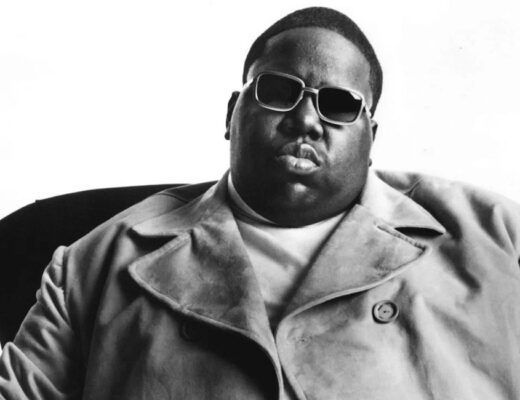Kingmaker is Neilson’s finest record yet, and a strong argument that she might herself be the current king of country music.
Kingmaker, the sixth studio album by Tami Neilson, is less an album of recorded music than it is a dissertation on contemporary feminism framed in (pop-)cultural literacy. As a statement of women’s inerrant agency, it’s perhaps the densest album since PJ Harvey’s landmark To Bring You My Love. As a sociological study, it’s perhaps the most thoughtful album since Patty Loveless’ Mountain Soul. As an encyclopedia of perfectly and purposefully chosen musical references, it belongs in a conversation with Beyonce’s contemporaneous Renaissance. As an album that displays mastery of both genre conventions and vocal technique, it has no real point of comparison or peer. Both of Neilson’s two most recent albums — 2018’s SASSAFRASS! and 2020’s Chicakboom! — were among the finest releases of their respective years, and certainly mined similar territory, but Kingmaker makes both of them sound like rough drafts in hindsight. The clarity of focus and vision on Kingmaker is simply beyond Neilson’s already once-in-a-generation standards.
The album opens with its title track and thesis statement. Over an arrangement that is best described as a slightly twangy version of a Shirley Bassey-era James Bond theme, Neilson immediately announces that Kingmaker demands close attention to the artistic and aesthetic reasons she’s chosen to invite comparisons to specific cultural markers. Bond, particularly the “classic” films, is positioned as a hero whose power and intrigue are directly tied to the problematic way he leverages his cultural privileges. Neilson’s invocation of that character, then, plays as a powerful rejection of those exact cultural privileges, as she belts patriarchy-upending lines like, “If my famine made your feast / Then I’ll stop asking for what’s already mine.” As her vocal performance crescendos, she declares independence from the self-appointed “kingmaker,” asserting that, perhaps, she’s always been a king after all. It’s provocative and smart as a subversion of both cultural tropes and systems of oppression, and it’s riveting as a showcase of Neilson’s vocal skill.
“Baby, You’re A Gun,” is just as impactful. The arrangement is a nod to Ennio Morricone’s score to Tarantino’s Kill Bill films, which are fundamentally about a woman’s retribution against those who would deny her agency. Neilson’s song covers similar territory, swapping Beatrix Kiddo’s Hatori Hanzo blade for a firearm, and leaning into the ways that women’s roles are prescribed for them. “When they look at you, they see,” a mother or a daughter or a lover, Neilson sings over the course of the song’s verses. There’s a clear throughline to the way conservatives make politicians frame statements about issues pertaining to women: “As a father of two daughters,” or, “I think about my wife and mother,” are the types of framings so often used by those in power who can only demonstrate empathy to others once something has become personal to them. Neilson has no time for such things, instructing each of those daughters and mothers to embrace and use their own power: “They’d better run and hide,” she warns.
Although the referents are diverse — from the Spanish guitar that nods to Willie Nelson’s and Julio Iglesias’ “To All The Girls I’ve Loved Before” on “Beyond the Stars,” a gorgeous duet with Nelson himself, to the yelps and sneers on “Mama’s Talkin’,” which recalls the accessible punk of Blondie’s Parallel Lines — the overall aesthetic of the album coheres around Neilson’s deep understanding of country music conventions. It’s no accident that she casts the autobiographical “King of Country Music” as a nearly a capella front porch jam session; backed by little more than some handclaps and a plucked banjo, she reminisces about opening for Kitty Wells and performing at Opryland, questioning whether or not the genre’s would-be king could be, “the daughter, not the son.” That she asks this exact question at the end of the song before immediately segueing into her duet with one of the men, Nelson, who could stake a legitimate claim as true country music royalty — again, there’s nothing on Kingmaker that’s an accident.
It’s to Neilson’s credit that she balances the explicitly political — “Mama’s Talkin’” dresses down a man who paints himself as a victim of “cancel culture,” while “Ain’t My Job” takes aim at the wage gap — with personal narratives that deepen the album’s thematic heft. “Beyond the Stars” mines her evolving grief over her father’s death, and standout “The Grudge,” a stirring and stomping dirge, addresses generational trauma. To that end, Kingmaker is an album about how injustices and abuses function within systems to inflict individual pain that then informs each individual’s experiences and relationships. Is it any wonder, then, that Neilson shouts and wails and belts her way through these dense — and, it must be said, catchy as all hell — songs? Kingmaker finds the most gifted singer in modern popular music using her extraordinary voice to elevate and inspire those who are too often voiceless.
Published as part of Album Round — July 2022 | Part 2.







